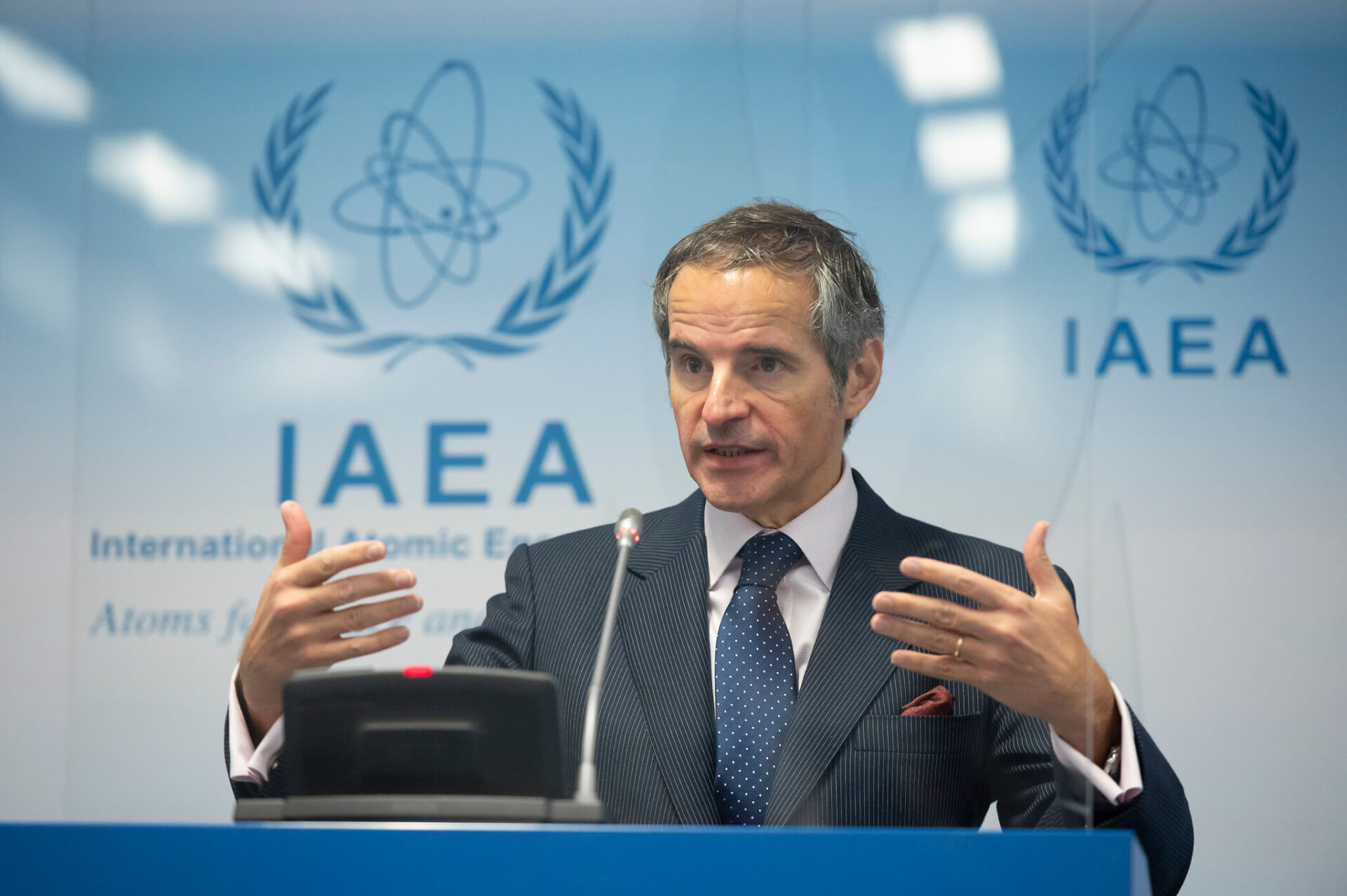On Monday, the International Atomic Energy Agency (IAEA) published a report that said that Iran had failed to explain the previously undeclared uranium traces found at several nuclear facilities. The report, which comes amid ongoing talks in Vienna to revive the 2015 nuclear deal, has raised concerns that Iran may have breached enrichment limits set by the deal.
“After many months, Iran has not provided the necessary explanation for the presence of the nuclear material particles at any of the three locations where the agency has conducted complementary accesses [inspections],” the report said. Earlier this year, the United States (US) had called on the IAEA to criticise Iran’s refusal to cooperate with Agency inspectors. The US’ comments were met by Iranian threats to end a temporary deal struck with the IAEA. Following this, Western powers led by Britain, France and Germany decided to scrap the US-led effort to rebuke Iran in order to avoid tensions.
The report also added that IAEA’s Director-General, Rafael Mariano Grossi, was concerned that “technical discussions between the Agency and Iran have not yielded the expected results.” The Agency also said that Iran’s refusal to cooperate with IAEA’s monitoring efforts “seriously affects the ability of the Agency to provide assurance of the peaceful nature of Iran’s nuclear programme.”
In response to the report, Iran’s permanent representative to the United Nations (UN), Kazem Gharibabadi, said that Iran’s atomic agency head, Ali Akbar Salehi, sent a letter to Grossi, expressing Iran’s willingness to “cooperate constructively” with the IAEA. “Iran has so far done its utmost efforts to cooperate with the Agency substantively and provide the necessary clarifications and responses,” Gharibabadi said regarding the concerns expressed in the IAEA reports. He also mentioned that Iran’s extension of the expired deal enabling the IAEA to monitor the country’s nuclear facilities was proof of its willingness to engage with the Agency.
Last month, Iran decided to extend a monitoring agreement with the IAEA by a month, despite Iranian Parliament speaker Mohammad Baqer Qalibaf’s claims that the deal had expired and that Iran was no longer required to cooperate with the IAEA. The extended agreement will allow the IAEA to have access to surveillance images collected by cameras inside Iranian nuclear sites.
The deal is a watered-down version of the original Additional Protocol (AP), which was a part of the Joint Comprehensive Plan of Action (JCPOA) in 2015. The AP gave the IAEA access to hundreds of thousands of images captured daily by cameras installed in Iranian nuclear sites. Following former United States (US) President Donald Trump’s unilateral withdrawal from the 2015 deal in 2018 and the re-imposition of economic sanctions on Iran, the country’s lawmakers approved a plan to suspend the implementation of the AP in 2020.
Despite these circumstances, Iran had said that it was ready to implement the AP if the US-imposed sanctions were lifted. “Resumption of voluntary application of AP by Iran is predicated on sanctions being lifted. We would like to get to it before 21 May, if possible,” Iranian Deputy Foreign Minister and top nuclear negotiator, Syed Abbas Araqchi, tweeted last month. “We are serious and determined, ready to do it even tomorrow: once sanctions are verifiably lifted, we will return to full implementation of JCPOA.”
Officials from Iran have been holding intense negotiations to restore the 2015 landmark deal, with their counterparts from Britain, France, Germany, Russia, and China in Vienna, Austria since April. Although the US has sent a delegation led by Special Envoy to Iran, Robert Malley to Vienna, it has not directly met with the Iranian side. Last month, after the conclusion fourth round of talks, the negotiator expressed satisfaction with the progress of the discussions and hoped that a final agreement would be reached in the next round.

